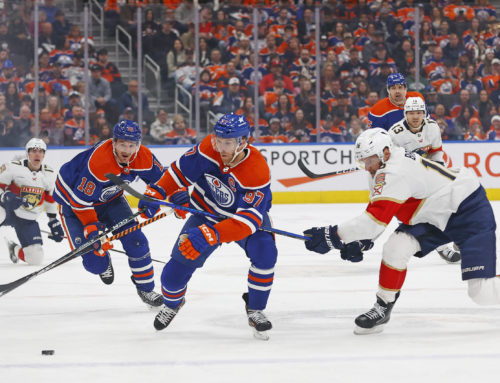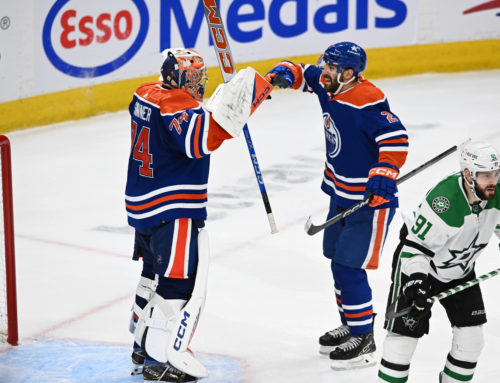Trading – Code of Conduct
Dobber Sports
2011-01-27

Fantasy Hockey Trading Guidelines: For those of you entering a fantasy league for the first time this season, or who are thinking about joining your for league for next campaign, may be a little nervous about how to conduct yourselves in terms of trading and negotiation. Furthermore, there are plenty of new commissioners who could probably use a couple of tips in terms of how to conduct deals while still holding yourself accountable as the “leader” of your league. You set the example, so you have to hold yourself to higher standards. I have taken the time to list not only what should be hardcoded into your rules, but also a few things to keep in mind if you want to maintain friendly relations with your fellow GM’s.
The two sections are separated as “legally” and “morally”. Those terms should be self-explanatory. Of course, in leagues that are roto-style and rely on automated tracking of points, would also rely on automated (i.e. managed) tracking of trades – thus, these guidelines are not aimed at you or your league.
Legally (Rule)
A trade between two teams becomes official when each team sends an email to the commissioner announcing an agreement involving assets. Both emails must be in agreement as to the exact assets moving from one team to the other.
In the event that the commissioner is involved in a trade, the other party involved must send the final confirmation email. If the commissioner agrees to the deal as discussed, the other party must then agree to the commissioner's latest email. The deal can then be announced. In other words, if an owner makes an offer to the commissioner, the commissioner cannot simply announce the deal. The commissioner must accept the offer and then the originating owner must then send in his confirmation of the accepted deal.
Morally (Etiquette)
If you send an offer and the owner immediately accepts, you are morally obligated to send your confirmation to the commissioner. Legally, you can back out. But this would offend the other owner and probably damage future trade discussions. One way around this is in the wording. Simply adding the phrase "What do you think of – – " to the offer makes it informal and a starting point only.
If you send an offer and the owner drags his feet for a day or more before accepting, you are within your rights from both a legal and a moral standpoint to back out of your offer if a player involved is injured, has a big night, or has a terrible night since you made the offer.
If you rescind your offer before the other owner responds, then no harm done.
If you send offers involving similar players on your team to multiple owners, then put that in the wording. "I'm shopping Player X and Player Y around. What do you think of – – ". Or "I'll give you blank for blank, but I have another offer out there that I am waiting on that I would rather do, so let me hear back from them before we take this any further.
If you receive an offer, no matter how poor, always respond in a timely manner.
You are morally, but not legally, obligated to mention an injury if you believe the other owner may not know about it.





 FLA
FLA CHI
CHI NYR
NYR PIT
PIT L.A
L.A COL
COL CAR
CAR OTT
OTT TOR
TOR T.B
T.B
 MIN
MIN NYI
NYI CBJ
CBJ
